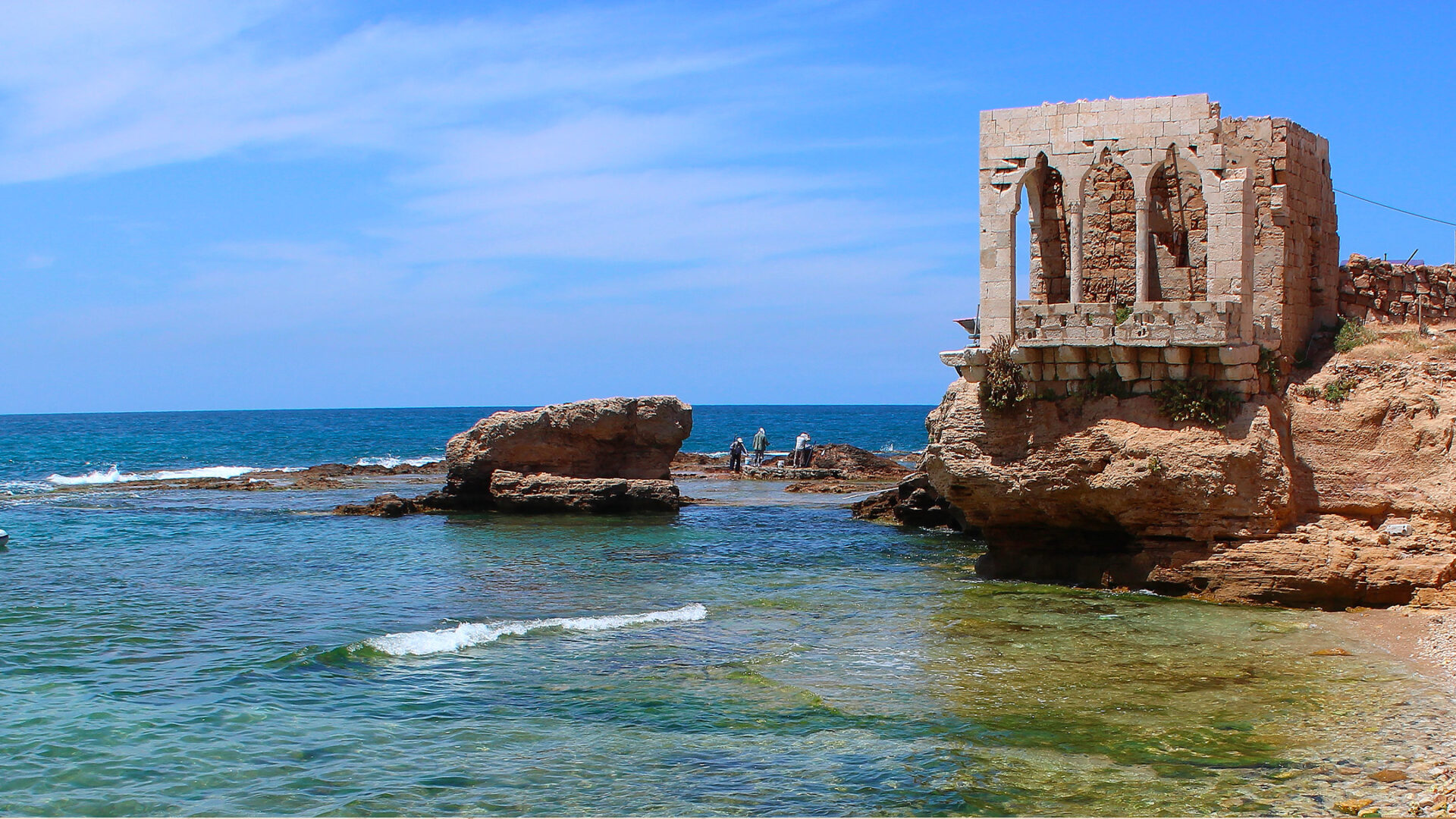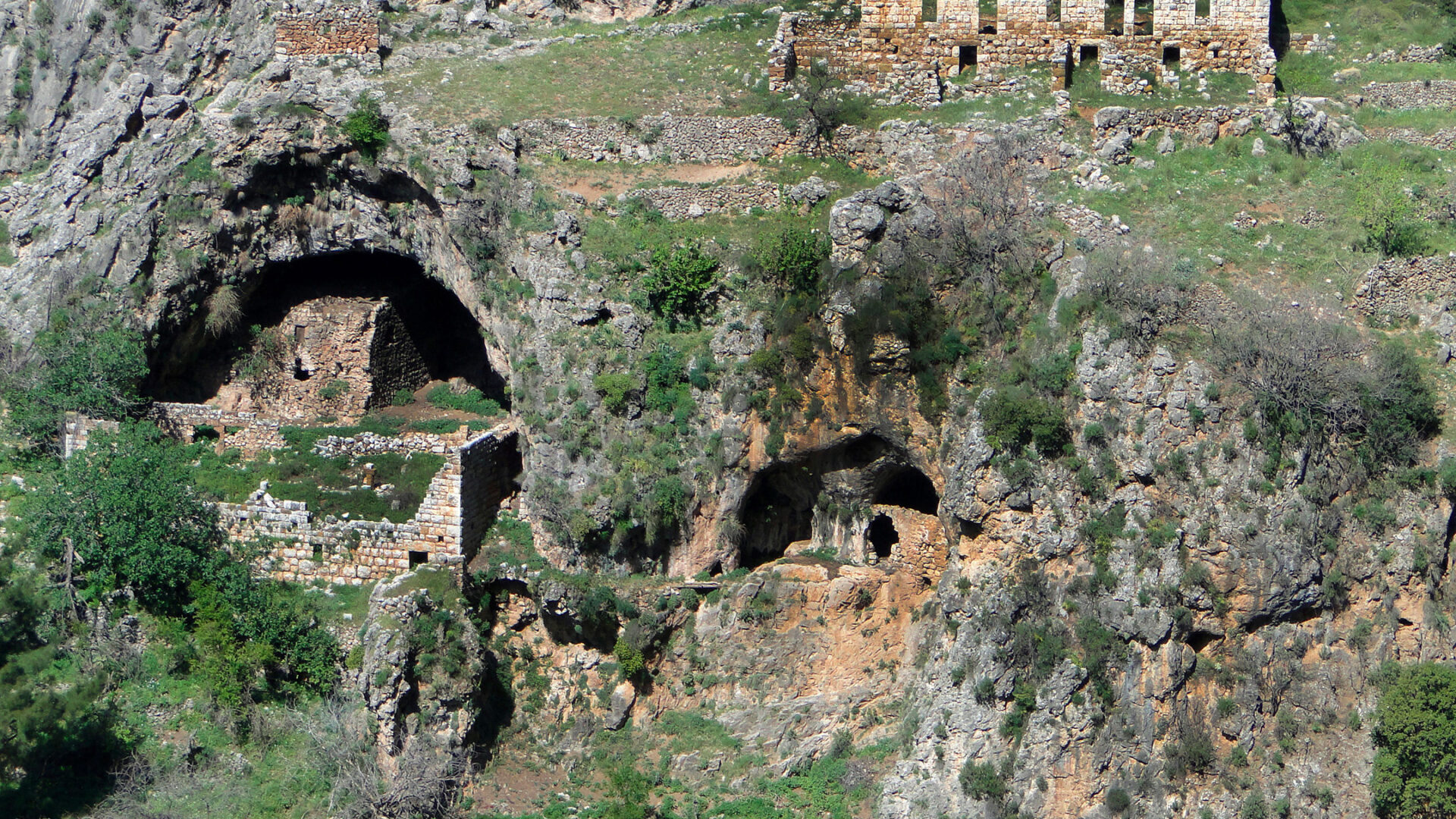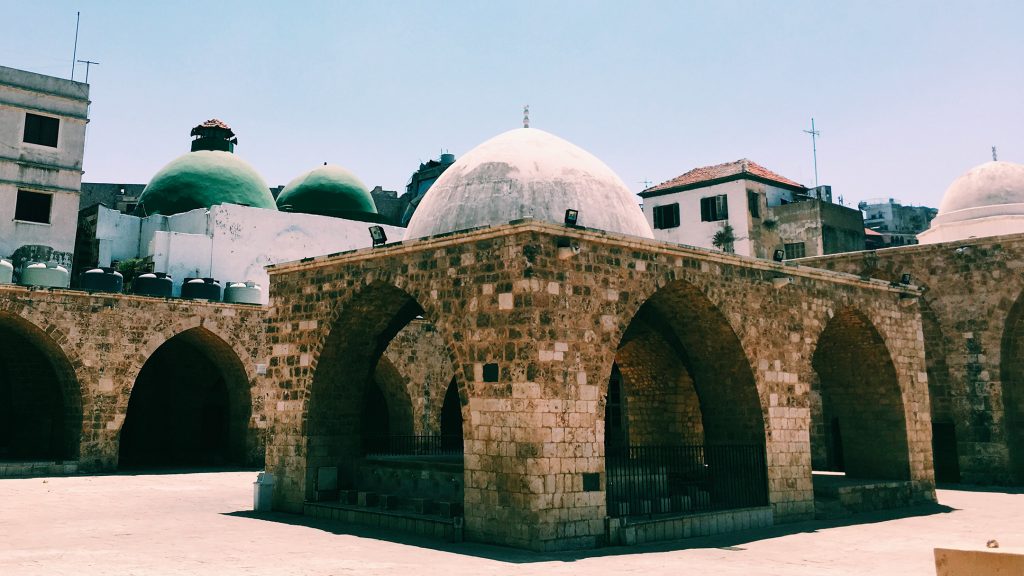Indulge in Batroun’s delicacies
Our first stop is the charming coastal town of Batroun. Visitors will be captivated by the crystal clear waters and rocky beaches that give the town life. Batroun was once a Phoenician harbour surrounded by citrus groves, and the traces of an ancient seawall built thousands of years ago by the city’s first inhabitants remain to this day. Aside from the town’s historical charm, visitors can enjoy its exceptional delicacies, starting with a fresh cup of lemonade—arguably the best in Lebanon.
On the seaside road north of the Madfoun checkpoint and past the crowded beach restaurants, you’ll find Joining Beach, a quaint joint off the main road, nestled among the rocks. This modest chalet serves delectable seafood (we highly recommend the squids “à la provençale”) in a simple, relaxing atmosphere. The flaneurs can lay back on the rocks and enjoy the Batroun sun, while the more adventurous can jump off the nearby cliffs and discover Batroun’s underwater grottos.

Looking to grab a drink? Head over to Colonel’s Microbrewery, a local establishment founded in 2013 that is well worth the detour. Its crafted beers are full of character and offer a welcome alternative to the mass-produced ones.
Wine lovers rejoice! The Batroun district is also home to many vineyards that have planted their roots in the region over the last ten years. Follow the wine trail that weaves its way through the area and sample unique, boutique creations at any one of the wineries that call Batroun home: Ixsir, Aurora, Abdelli; just to name a few.
To spend a night at the vineyard, opt for Abdelli Terraces, a member of the L’Hôte Libanais Family. The guesthouse and vineyard offers breathtaking views of surrounding hills and valleys, as well as the sea. You can savour the estate’s red wine and delicious cuisine during their traditional week-end buffets, and feel the community spirit that embraces the village of Abdelli. Other members of the Family in Batroun are Beit Douma and Beit Al Batroun, offering charm and unparalleled views of the region.
Mountain breeze in Bsharre
Bsharre is a charming town of red-tiled roofs nestled in the heart of the Qadisha valley. The inland road to reach it is impressive, meandering through steep gorges and twisting between snowy peaks and cliffs marked by cascading waterfalls. Dozens of monasteries are carved out of the rocky slopes, and are accessible through hiking trails. A good option is to follow the path towards the Hermitage of Our Lady of Hawqa. You may encounter Father Dario, a Maronite hermit from Colombia, who chose to spend the rest of his life meditating in the Holy Valley fifteen years ago.

The renowned poet, writer, and philosopher, Gibran Khalil Gibran, was born in the town of Bsharre. His hometown remembers his legacy with the Gibran Museum, a former grotto that houses the writer’s personal belongings, private library, and works.
The region is also known for its cedars; more specifically the Forest of the Cedars of God, which was mentioned several times in the Bible. The forest is one of the few sites that preserves the original Lebanese Cedar, which is a heavily-valued raw material in the antique world.

